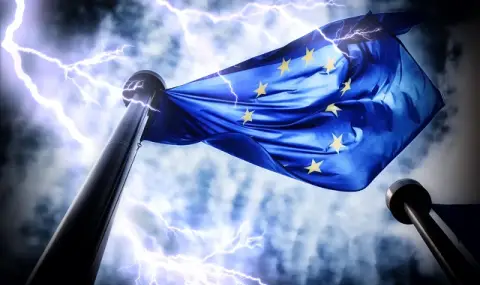The EU makes decisions through people's heads, has a bloated apparatus and wants to regulate everything, including how crooked the cucumbers are, say some of the most widespread myths about the EU. But is this true?
Almost everyone knows about crooked cucumbers - the now outdated symbol of the European Union's drive to regulate. The cucumber directive is long gone, but it's still on the minds of many, according to German public media ARD.
Is the EU overdoing the regulations?
Those who believe that the European Commission or the European Parliament are making too many decisions over the heads of citizens are happy to quote former EC President Jacques Delors, who predicted back in 1988 that one day 80 percent of economic legislation would come from Brussels.
Research, meanwhile, shows that Brussels does not interfere that much in the regulations. But the European Union naturally intensively regulates what it is fully or primarily responsible for - for example, international trade relations, the internal market, agriculture and fishing, ARD points out.
Environmental legislation is also becoming increasingly important, and the "Green Deal" became a key project for Ursula von der Leyen's term as head of the EC. On the other hand, the EU hardly intervenes in the spheres of employment, social work and health care.
The number of directives
Ten years ago, there were about 4,600 basic legal acts in the EU, and today there are almost 6,500, ARD estimates. Over 370 new directives were adopted last year.
Before that, the number of new laws fluctuated around a constant level, and sometimes it even fell. Therefore, it does not make much sense to look only at the numbers - the quality of the laws is decisive, writes the German public media.
For several months now, liberals, Christian Democrats and extreme right-wing politicians have been campaigning against environmental legislation, and in their election campaigns they called for an end to regulation, ARD also writes and recalls that under the pressure of farmers' protests not long ago, some bureaucratic regulations were withdrawn. That is, EU legislation is flexible and depends on the political climate.
No, the EU does not make decisions through people's heads
Some of those European politicians who resent over-regulation in the EU are often not telling the whole truth: in Community legislation, the question is not just how much regulatory enthusiasm the EC shows and what is the number of its legislative initiatives.
Parliament and states are not obliged to approve the Commission's proposals - they are equal partners in the legislative process, within which directives and regulations can also be repealed, explains the German media.
In other words: whoever claims that the EU regulates too much or over the heads of the citizens, is silent that the nationally elected MPs and ministers in the bodies and institutions of the Community must also raise their hands for a given law to be passed.
A bloated administrative apparatus?
And since we are talking about myths - the claim that the Commission's bloated apparatus is to blame for the excessive regulation is also untenable.
As informed by ARD, 32,000 employees work for the European Commission, which prepares the laws for about 450 million inhabitants of the Community. For comparison: only in the municipality of the German city of Cologne there are 22,000 employed.
